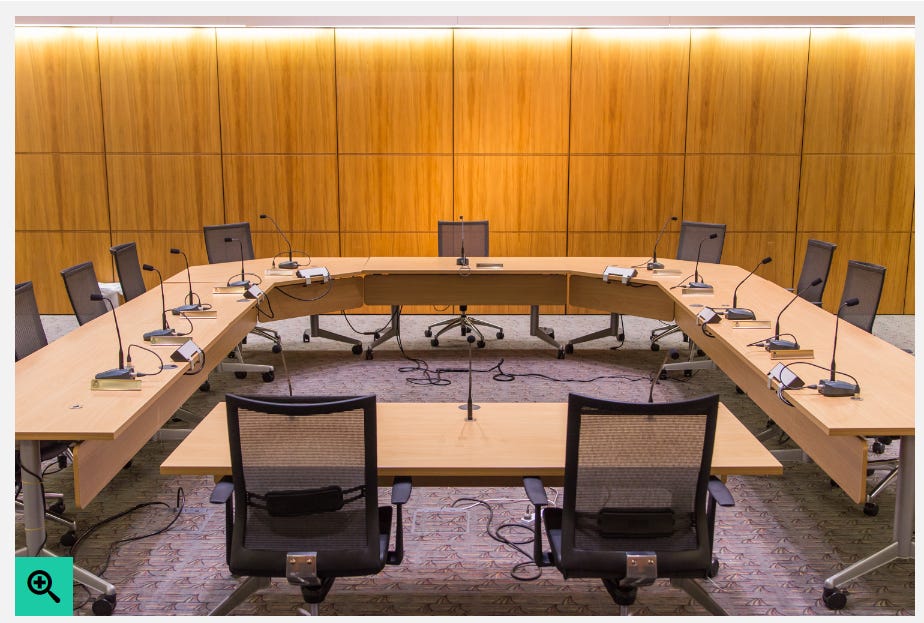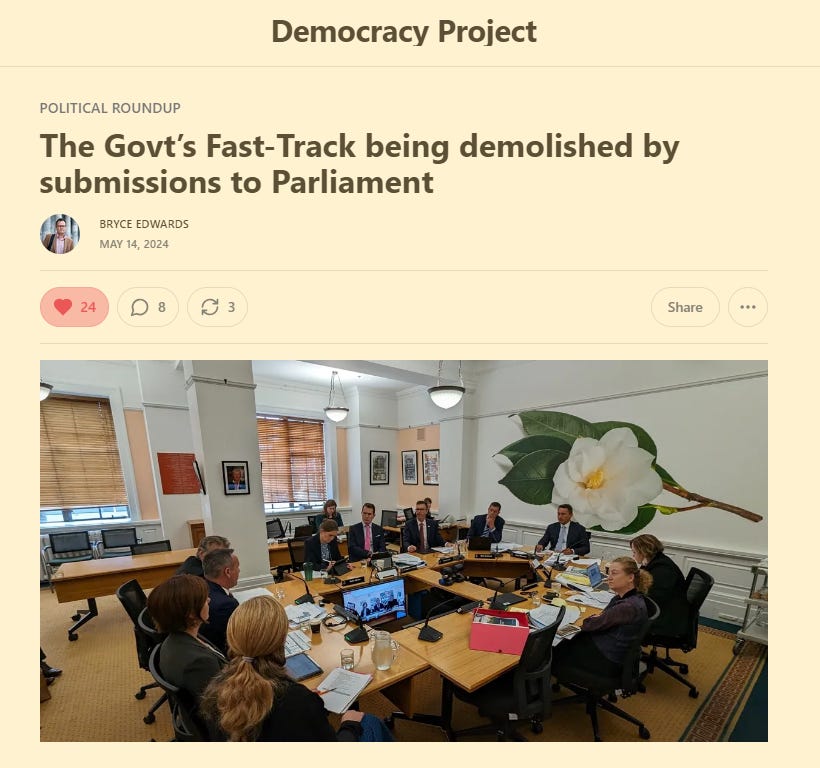My Oral Submission for the Fast Track Bill on 15 May 2024
Out of the 2,350 individual submitters asking to be heard orally, only 550 appointments were made, and I was one. It was an important five minutes for me.
Tēnā kotou katoa Environment Select Committee,
Tēnā koe to Marama that I see is around the Zoom call somewhere.
My name is Natalia Albert. I am a public servant and PhD student at Victoria University living in Wellington. For over five years, my professional and academic focus has been on social cohesion-related topics, specifically examining the relationship between policy and social cohesion in New Zealand.
Today, I approach you through this lens to discuss the Fast Track Approvals Bill.
I have trained academically as a political scientist, with an undergrad, post-grad diploma, and master's from Vic Uni in political science. I remember when the No New Mines In Conservation Land policy came in in 2017, and in 2018, I took up a job at MBIE regulating the mining sector. During this time, I gained a deeper understanding of the reasoning behind this bill. Therefore, I understand the motivations behind proposing this bill. I’m not here to raise that. However, I want to make a few suggestions so that this bill does not impact New Zealand’s social cohesion. Social cohesion, to me, encompasses not only our trust in government but also our trust between different groups.
I urge this committee to consider a more moderate approach to the Fast Track Approvals Bill. Shifting slightly towards the centre can prevent further division within our society.
To foster national unity and ensure everyone's safety, I propose that the bill be adjusted to be less radical. Some ways to achieve this could be by including the Minister for Conservation and Environment in the decision-making team, ensuring that the recommendations from expert groups carry binding authority, or enhancing transparency within the process.
To increase transparency, the minister(s) involved could:
release a statement stating that they intend to make this process as transparent as possible. They could recognize that operational and privacy issues must be addressed, but they will try hard for radical transparency.
Make all relevant meeting agendas, briefings and papers publicly available as soon as possible.
Allocate budget to guarantees agencies can release documents faster, more clearly, and easily.
Diversifying the way ministers and agencies communicate any issue related to this bill with, for example, illustrations, plain English text, and larger font formats. This will help more people identify and understand the topics.
Thank you
**For clarity, I added my suggestions for higher transparency within the full text. However, I raised those when Hon. Katie Nimon from National asked me if I had any suggestions on increasing transparency after speaking.
**5 minutes have never gone faster.
The Select Committee process
The government introduced the Fast Track Approvals Bill to Parliament for its first reading in March. A select committee must now examine it, and it will report on its recommendations on September 7.
The Environmental Select Committee is considering the bill, which has allocated six weeks to consider public submissions and presentations. However, due to the many submissions, the select committee has had to cut back on hearing from everyone.
Of the 27,000 submitters, about 2900 have requested to appear before the select committee to discuss their feedback on the bill. Given these vast numbers, a decision has been made to restrict oral submissions to just 1100. The Committee has decided to allow appearances from 550 organisations who want to speak to the committee. They will get ten minutes each.
Regarding the individuals, 2,350 submitters have requested to be heard at the hearings, but only 550 appointments will be made. To decide who gets these, the committee has opted for a ballot to be used as a mechanism for random selection. Some higher-profile individuals, such as former MPs, will be automatically selected. All individuals are being allocated five minutes each.





